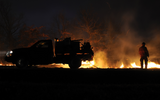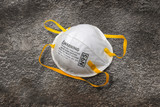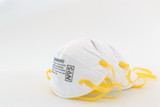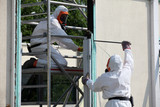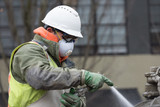Blog
Worker Safety During Wildfire Cleanup
The
dangers of a wildfire don’t end once it’s extinguished. Cleaning up after a natural disaster is dangerous, and cleanup workers need to be prepared for any hazards they might encounter: you don’t want to make recovery longer or harder by getting seriously hurt. In addition to having the proper wildfire personal protective equipment, follow these safety tips to avoid the potential hazards of post-wildfire cleanup.
Electrical Hazards
Once a wildfire has died down, power lines might
…
Jul 22nd 2021
Fake N95 Mask? How to Detect Fake N95 Mask
The COVID-19 crisis has left hospitals in a difficult position. More personal protective equipment is desperately needed, and while some protection is better than nothing, healthcare providers who work closely with coronavirus patients need an
N95 mask rather than a surgical mask. Civil-grade, low-quality, or counterfeit masks just don’t offer the same protection for patients or providers, and it’s important that providers know what kind of protective gear they’re getting. Luckily, there a
…
Jun 16th 2020
Are N95 Masks Reusable?
The recent Coronavirus (Covid-19) outbreak has created a lot of changes to how daily lives are lived and medical personnel perform their jobs. The shortage of N95 respirators has happened before (SARS, MERS, etc.), just not on this scale. The CDC does not recommend that the general public wears N95 respirators as protection from COVID-19 or other respiratory diseases: the best way to prevent illness is to avoid exposure, and respirators are invaluable to healthcare workers that need the added
…
Mar 30th 2020
Respirator Ratings: What Do N95 and P100 Respirator Ratings Mean?
If you and your team need to wear respirators on the job, it helps to have a means of comparing the relative protection between different respirators and filters. These ratings are designed to help protect you and your workers from different sets of airborne hazards. Sawdust and particles containing asbestos fibers are not the same. Neither should we use the same filter. If you use the wrong type of mask on the job, it could put you and your team at risk.
Learn more about N-, R-,
…
Mar 2nd 2020
Respiratory Basics: P100 vs N95
For a lot of job sites, safety masks and respirators are an essential piece of PPE. The lungs are delicate, important organs that are hard to repair if they get damaged, and inhaling the wrong chemical can have devastating effects on other areas of the body as well. Protect yourself from invisible airborne particles by investing in a respirator or mask suited to your job.
How Masks and Respirators Are Rated
The National Institute for Occupational Safety and Health (NIOSH) is a divisio
…
Feb 4th 2020
How Often Should You Replace Your Dust Mask?
First of all, a dust mask is has a single strap that goes over the head and provides very little protection from particles and debris in the air. They're also called
nuisance dust masks and they're best used for mild applications like leaf blowing and general household dust protection. Dust masks just don't provide a good face seal and they protect about as well as nose hair, which is to say not that well. Replace them when they look dirty or after about 8 hours of wear. Honestly they're n
…
Nov 20th 2013


